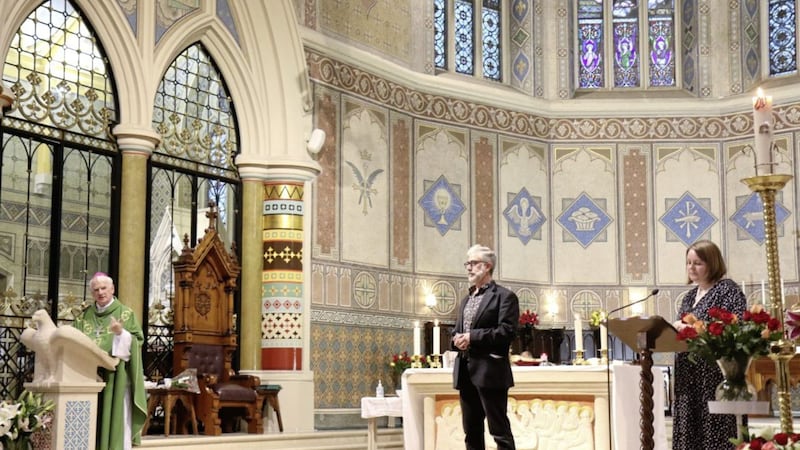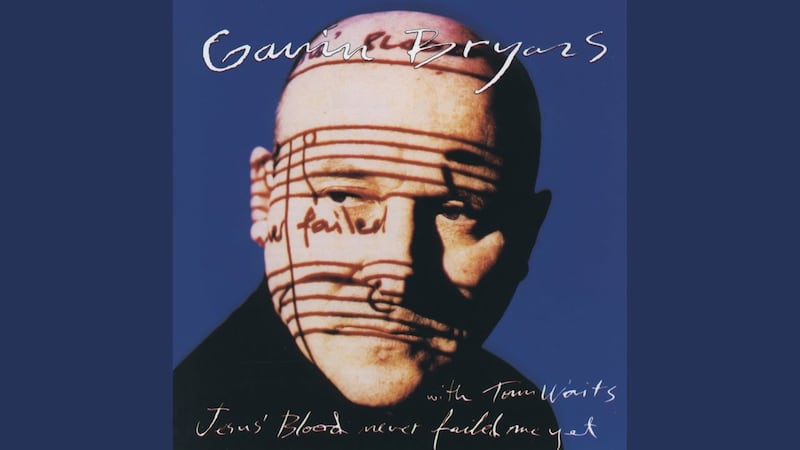THE holding of a synod is something that we might automatically connect with the Anglican tradition and yet it is a word that is entering into the vocabulary of Catholics around the world.
Pope Francis has overseen three synods to date in the Universal Church: a synod on the family; another on young people, faith and vocation discernment; and the synod for the Amazon.
Now a fourth synod has been opened, this time inviting the whole Church to question itself on synodality: a decisive theme for the life and mission of the Church.
After a synod happens, a publication always follows to explain what it has decided.
These 'Apostolic Exhortations' are often not light reading, and many people in local churches do not read them. Perhaps, we have not felt as engaged in the process of synodality as we might have been.
However, this time around Pope Francis has asked that all Catholics be engaged in the process, and to enable this, the synod begins locally, listening to the people in each diocese.
To this end each diocese in Ireland and across the globe will be, in the coming months, asking: What is it like to journey in the Church? What is our experience of the Church?
Such listening events are not new. In the Diocese of Down and Connor in 2011 there was a listening exercise in each of the 87 parishes that heard from over 3,000 people. That process went on to guide the pastoral renewal in the diocese, under the auspices of the Living Church office.
However, listening is not a one-off event, but part of the fundamental nature of how we exist as a church; listening to one another and listening to the Holy Spirit ever present and always seeking to guide us on the right path.
In the Catholic Church in Ireland we could be forgiven for not knowing about synods, as the last to take place in Ireland happened in Thurles in 1850.
When we look back to that synod, we see that, in that era, life in Ireland was influenced by two dominant and long-lasting events: Catholic emancipation and the Famine.
These shaped Ireland for the century and more to come and, indeed, the Church at that time read the signs and responded to what it saw.
And now, in our time, we are faced with our own dominant and probably long-lasting events; the increasingly secularised nature of Irish society, the uncertainty caused by Brexit and the far reaching ramifications of the Covid-19 pandemic.
In these times we would do well to read the signs again, listening to each other as we go, so that the Church can respond accordingly.
Listening during a pandemic is difficult - we can't gather in parish halls in large number, but this encouraged a creative listening in Down and Connor entitled Know Us By Our Love.
Fifty clergy and laity, guided by the Living Church office, were commissioned by Bishop Noel Treanor to listen to the experience of people; what they valued about the Church, what the Church needs to stop doing and what new priorities should we be attending to.
People were encouraged not to listen in closed circles, but to listen widely, extending the listening to family, friends, colleagues and those who don't readily align themselves with Church.
And so 205 adults were listened to, with a further bespoke listening to adults with learning disabilities and going out to schools listening to 80 young people.
There was great variety in what we heard. The richness of information was collated and a working group, sitting with and distilling all they had heard, identified five strong themes.
Firstly, God calls us to serve together - and as a diocese we need to reflect further on how we as priests and people recognise the call we all have to serve, the gifts that we have to place at the service of others, and how we place all our resources at the service of building the Church.
Why? Because the second theme was that we want people to encounter God's love. We need to find new, dynamic and creative ways so that we can know Jesus Christ as the way, the truth and the life.
And that is something for everyone. In our listening we heard a third theme emerge: everyone belongs. Some of the most emotive and challenging responses we heard were when people spoke of their personal experience of exclusion and the hurt it caused them. Let us open wide the doors of the Church to all without exception.
And, as Pope Francis has instructed us, when we open wide the doors of the Church we must go out.
We heard that people want to see the presence of the Church community in wider society.
This gave rise to our fourth theme. As a church we have a life-giving message for the world and we want to ensure that our message of love, of the sanctity of life, care for the poor and care for the earth is heard and responded to.
And our final theme was the Church as a loving family. People valued the loving pastoral care that they have received from the Church and they want that to grow so that everyone at all stages in life - hard times and joyful - know the presence of a loving community of faith.
These powerful listening moments are expressions of synodality. In this way, synodality is not to be feared. Indeed, as Pope Francis says, "the path of synodality is the path that God expects from the Church of the third millennium".
Let us pray for the synodal path we are stepping onto and ready ourselves to speak and listen with generosity and courage, trusting that the Holy Spirit accompanies us on this journey.
Paula McKeown is director of the Living Church office in the Diocese of Down and Connor.



